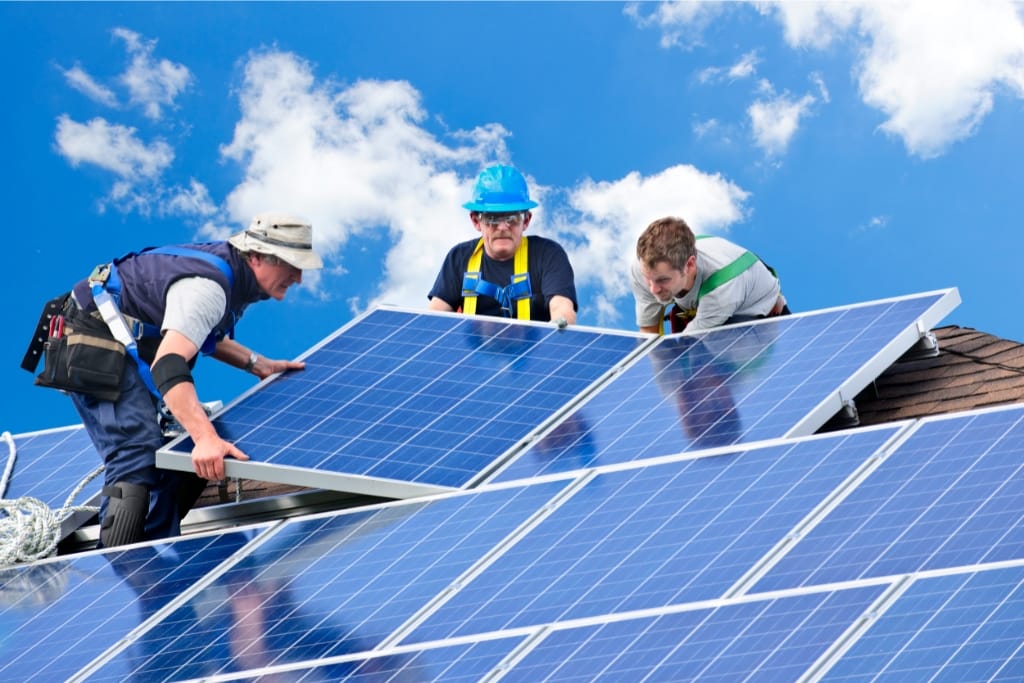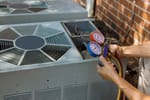Choosing the perfect solar panels for your home is an important decision that requires careful consideration.
With the right solar panel installation, you can save money on energy bills and make a positive contribution to the environment.
But with so many options available, it can be hard to know where to start.
Fortunately, there are some key tips you can follow when selecting your solar panels that will help ensure you get the best possible product for your needs.
In this article, we’ll look at 10 top tips for choosing the perfect solar panels for your home.
These tips will help guide you toward making an informed choice about your new investment.
1)) Recommendations
When installing solar panels in a home, it is important to consider recommendations from consumers.
Solar panel installation can be expensive and time-consuming, so it’s essential to do your research ahead of time.
Consumers and people you know who have already gone through the process of installing solar panels can provide valuable insight into the best brands, models, and installers for the job.
They can also share their experiences with different companies that offer solar energy services.
Taking consumer feedback into consideration before making any decisions will help ensure that you are getting the most out of your investment by choosing high-quality products and reliable service providers.
2)) Warranty
Look for warranties that are at least 25 years from solid and reputable companies.
Solar panels are a major investment that is exposed to a reasonable degree of possible damage.
Take the time to protect your investment over the long term.
3)) Price and Quality
If you try to save by buying low-quality panels, you will likely end up paying more in the long run due to damage or inefficiency.
If you do find a good deal, make sure that it is because a major company is lowering prices to be competitive and not because a poor company is cutting corners.
4)) Standards and Certifications
Do some research on national solar power standards and certifications.
Only buy panels that meet the standards of national bodies, as opposed to just being quality-tested by the company itself.
5)) Panel Types
Different types of panels have different levels of efficiency. This means that if you have a limited area for mounting panels, then you will quickly reach your maximum power output when using less efficient panels.
Do not make the mistake of buying less efficient panels, and then finding out that you have run out of space without meeting your growing power needs.
6)) Mounting
Be sure that your panels are mounted to your local standards. This is particularly important when you have regular local natural occurrences that might damage your panels, such as earthquakes or tornadoes.
Solar panels can be mounted in ways that protect them from various natural occurrences, so be sure that yours are protected for the area that you live in.
7)) Inverters
The inverter is a major component of your home solar power system, and you want to choose solar panels that come with or are compatible with a high-quality inverter.
It is recommended that you start by choosing your inverter first, and then deciding on the solar panels that are compatible with it.
8)) Quotes
Just as with any other major purchase in life, it is smart to shop around and get a few quotes from different suppliers and installers.
This also gives you the chance to bargain or find deals, which is very common in the solar panel industry.
9)) Avoid Pushy Sales People
Unfortunately, the solar panel industry has many less reputable companies and salespeople.
If someone is promising you the world for nothing, you are likely to end up with low-quality products.
Go with a professional company that offers you lots of guidance, information, and advice, as they are interested in your satisfaction, and not just their bottom line.
10)) Calculate Your Energy Needs
Before investing in solar panels, it is important to calculate your energy needs.
Solar panels are a great way to reduce your reliance on the grid and save money on electricity costs, but they can be an expensive investment.
Calculating your energy needs will help you determine what size of solar panel system you need and how much it will cost.
Knowing this information before making a purchase will ensure that you get the most out of your investment.
Calculating your energy needs may also reveal ways to reduce energy consumption through simple changes such as switching to LED lighting or reducing air conditioning use during peak hours.
With careful planning, purchasing solar panels can be an incredibly beneficial decision for both the environment and your wallet.
Conclusion
Choosing the right solar panels for your home is an important decision.
With these 10 tips, you can be sure to make the best choice that fits your needs and budget.
From understanding how much energy you need from a system to researching local incentives and rebates, there are several factors to consider when selecting the perfect solar panel set-up for your residence.
Don't forget to investigate warranties as well to ensure long-term savings with your investment.
Ultimately, taking the time upfront will help save money and resources in the future — so start shopping around today!
Are You Looking For The Best Solar Power Installers In Sacramento Ca? Click Here To Get In Touch With A Solar Expert Today!
Download Our Free E-book!








